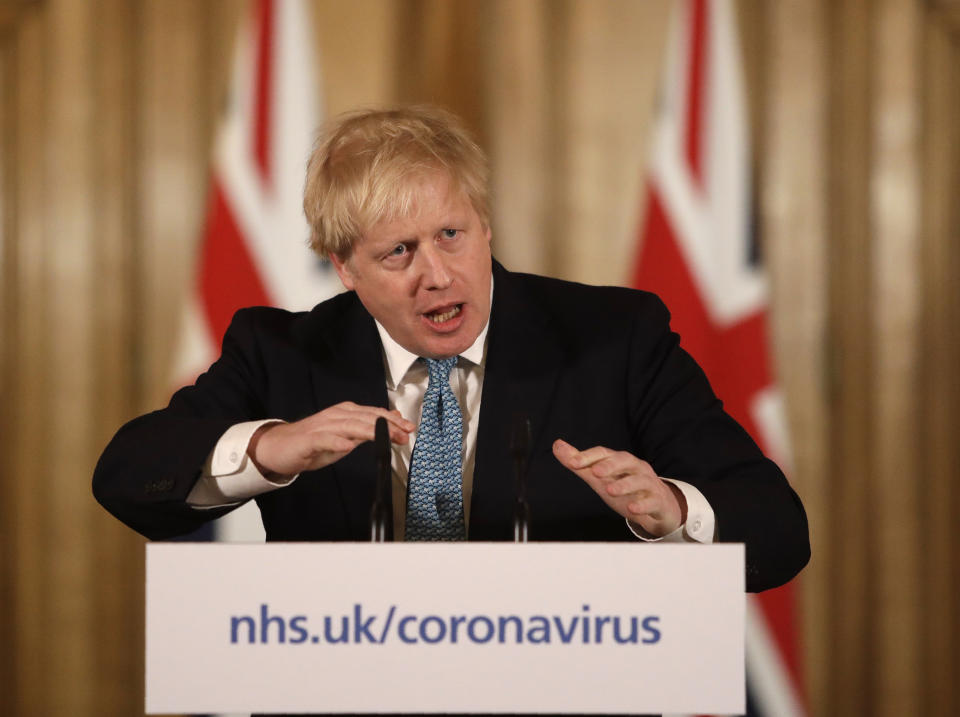7 questions answered about coronavirus restrictions - and how they affect you
Boris Johnson has announced all schools will close in the latest restriction put in place to stop the spread of coronavirus.
The Prime Minister confirmed in his afternoon press conference schools, colleges, universities and nurseries in England would shut on Friday until further notice.
The exception was for the children of key workers and the most vulnerable.
It was the latest measure taken by the Government to stop the spread of Covid-19 as the number of deaths from the infection rose in the UK to 104.

Here are seven questions answered about the coronavirus restrictions - and how they affect you:
Why are schools closing?
The PM and Education Secretary Gavin Williamson said schools in England would be closed from Friday until further notice for all pupils, except the children of key workers and the most vulnerable.
It came after Wales, Scotland and Northern Ireland announced similar measures on Wednesday.
They are being closed to stop the spread of Covid-19 by reducing social contact between people.

Why has the Government ramped up restrictions so much?
Most people in society have been asked to change their day-to-day lives in some way, from long-distance travel to washing hands more regularly.
The Prime Minister has urged “everyone to stop non-essential contact with others and to stop all unnecessary travel” in a bid to contain the spread.
He is likely to have seen spiralling death tolls and infection rates across other parts of Europe as a warning sign, though others have said the measures – advice, or guidelines, rather than commands – do not go far enough.
Latest coronavirus news, updates and advice
Live: Follow all the latest updates from the UK and around the world
Fact-checker: The number of Covid-19 cases in your local area
Explained: Symptoms, latest advice and how it compares to the flu
How long will the restrictions go on for?
The situation is changing constantly.
However, many have claimed that a lack of testing kits means nobody can be sure of the true scale of the problem, and how many have been affected.
International travel bans have already been extended, many until at least mid-April, so there is certainly potential for it to happen again.
Could things get worse?
The total number of coronavirus cases across the world has soared in recent weeks and is still on the rise.
In China, where it originated, the number of cases appeared to tail off in February before soaring again over a few days.
It has since plateaued, giving rise to hopes that efforts to contain its spread have worked.
As far as the UK is concerned, evidence of continued panic-buying and further cancellation of events up and down the country in the weeks and months ahead suggests there is a way to go yet.
What is self-isolating?
If anyone is symptomatic, the whole household should stay at home for 14 days to avoid the spread of infection.
This period starts from the day the first person in that house became ill.
People who live alone should isolate themselves for seven days.
What is the difference between self-isolating and social distancing?
The Government has asked everyone to undertake social-distancing measures to further limit the spread of Covid-19.
This is considered to be any “large gatherings”, plus going to pubs, cinemas, restaurants and theatres, while sporting events, festivals and concerts have also been postponed or cancelled.
People in certain at-risk groups – such as those over 70 and those with underlying health conditions such as asthma and heart disease – have been urged to be “particularly stringent”.
What medical support should I seek?
Health officials have been clear: take paracetamol, unless a doctor has advised you it is unsuitable.
There has already been confusion over the use of anti-inflammatory drugs such as ibuprofen, after a French minister said it could worsen the case.
People have been advised to use telephone or online services to contact a GP or other essential services.
However, those with a scheduled hospital or other medical appointment during this period are encouraged to talk to their GP or clinician to ensure they continue to receive the care they need.
People have been advised against turning up at hospital, and in some cases, appointments and operations have had to be postponed to help ease the pressure on the NHS.


